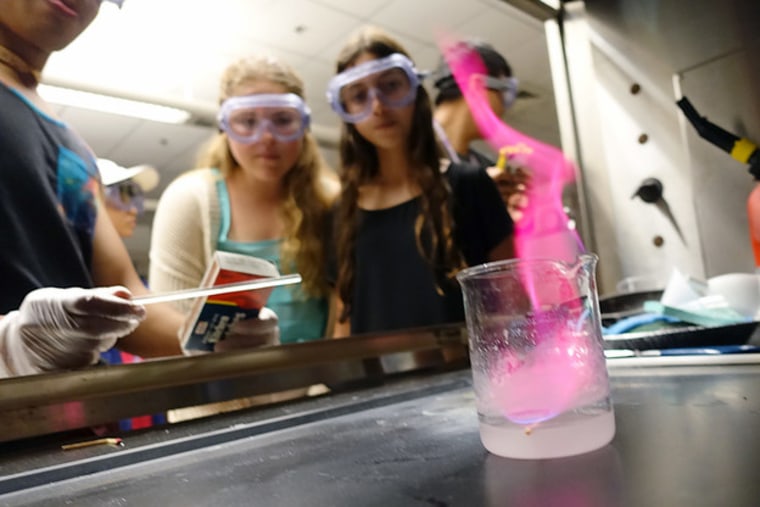With summer around the corner, high school students are deciding what to do once school is out — and many are looking for a way to get a leg up in the college application process over the break. One option many consider: academic and enrichment summer programs at college campuses across the country,
The programs, such as Explo, which has locations at Yale and Wellesley College, Duke University Talent Identification Program (TIP), Johns Hopkins Center for Talented Youth, and Stanford’s Pre-Collegiate Summer Institutes can be extremely competitive and are often expensive — with some offering residential living for campers.
But they offer high school students amazing experiences on some of the most beautiful college campuses in the country, and for some, might be a better fit than traditional summer camp.
Special section: Get tips and advice about college at College Game Plan
Toronto mom Emma Waverman, for instance, looked for what she called a “nerd camp” for her son Zachary after he graduated from eighth grade. They eventually chose Explo, a summer program led by teachers who engage campers through age 17 in subjects not traditionally found in schools, such as restaurant management or pop choir music.

“We wanted him to have the experience of going away and living with other kids,” Waverman told NBC News. “But he is not a traditional camp kind of kid. We thought it would be a good fit and he would be with like-minded kids at Explo.”
Explo was a good experience, and it provided Zachary with some reassurance as he headed toward college.
“He has some anxieties, and it was good for him to know he could go away and survive,” she said.
Related: Why Students May Not Consider Taking A 'Gap Year,' But Should
Some programs, including Explo, offer scholarships, but generally cost the equivalent of private school tuition. When considering the programs, many parents wonder whether they need to stretch themselves financially to pay for elite programs that may look better on a college application than a summer job or a vacation. The answer, experts say, is not necessarily.
Tufts University’s director of undergraduate admissions, Susan Garrity Ardizzoni, told NBC News that her office’s message to prospective students is to be involved in an activity or pursuit that interests them while they are in high school, whether that is a group, a team, or an organization.
“How students spend their summers should be similar,” she said. “If it’s been going to summer camp, working, hopefully finding some down time, family vacation, traveling — we don’t judge their choices at any point in the process.”
Ardizzoni said at Tufts, the admissions office does not favor or expect any certain type of summer activity from applicants.
“However, students who are admitted to Tufts have been engaged in their high school experience and community and describe that in their Tufts application in a way that allows us to envision them as a part of our community,” she said.
Related: Campus Therapy Dogs Offer a Helping Paw to Stressed Students
Nonetheless, a summer program on a college campus could be perfect for a student who craves structure over the summer and wants to experience a taste of college, Admissions Revolution founder and college counselor Sara Harberson told NBC News.
“It can give the student confidence in being on a college campus, living in dorms, and pursuing an academic interest," she said. "But attending a summer program is not going to be a game-changer when applying to college.”
Summer is the best time for students to pursue interests and talents without the limitations of the school year, and they can do that whether they enroll in a formal program or not, Harberson added.
“A budding filmmaker can choose to attend a summer program on filmmaking if they've never done it before. Alternately, they could spend their summer making their own film if the interest has been developing over time,” she said.
Ultimately, summer should be a time when a student does something enjoyable.
“Summer programs are more about self-growth rather than self-promotion," Harberson said. "As long as the student does a summer program with this in mind, they will appreciate the opportunity for what it's worth instead of where it might get them.”